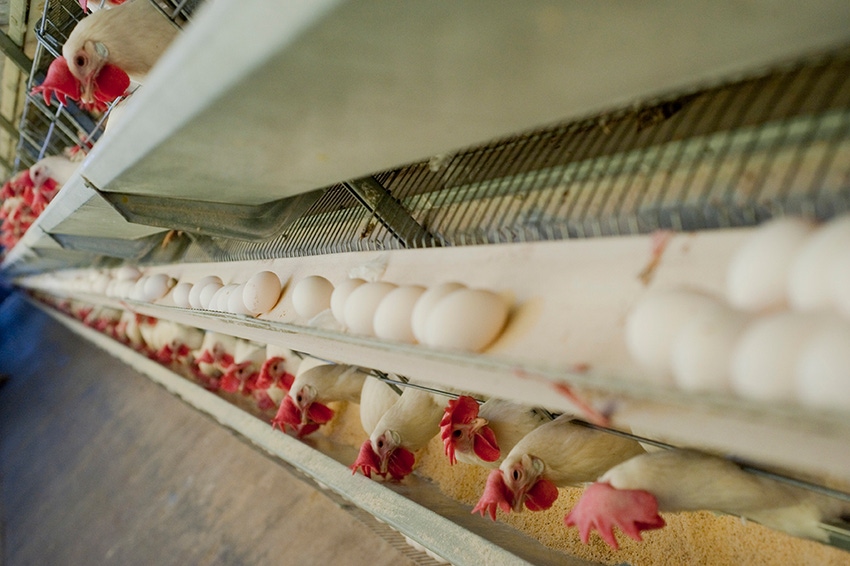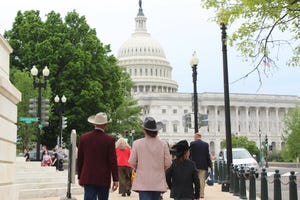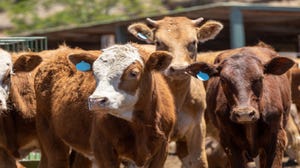At bedrock, the fight against California’s laws keeping eggs, pork and veal out of the state is constitutional. Here’s why that matters to you.
January 7, 2020

Most people think that the Commerce Clause of the Constitution prohibits states from making laws that would discriminate or burden other states. But the issue is more complicated than that. It is not an open and shut case. Meaning, the courts have had to make the determination hundreds of times in our history.
Now consider California’s laws restricting eggs, pork and veal being sold in the state only from animals that lived in bigger spaces than mainstream modern animal production provides. So far, cases tried in California courts have, not too surprisingly, struck out. And, so far, the Supreme Court has refused to review any of the cases.
But the Commerce Clause, as it has often been interpreted would seem to offer promising avenues for getting relief for animal agriculture in the other 49 states.
Which is why the North American Meat Institute (NAMI), the National Pork Producers Council (NPPC) and the American Farm Bureau Federation (AFBF) are involved in lawsuits attempting to stop California’s bid to set animal production standards for the whole country, based on regulations stipulated by the Humane Society of the United States (HSUS). Of course, while HSUS talks about preventing its definition of animal “cruelty,” they never talk about their long-term aim, which is to force livestock producers out of business.
Even California’s government, in evaluating the effects of the new laws, admitted that producers would incur substantial costs if they wanted to comply with the regulations and sell product in California. Not only would livestock producers have to commit hundreds of millions of dollars in remodeled or new facilities to comply, but consumers will pay more for food, as many producers in-state will go out of business and out-of-state producers will forego the California market entirely.
Could beef producers get sucked into this mess? It’s not out of the question.
Why is this not an open and shut case?
The Constitution’s language is this: Congress has the power “to regulate commerce with foreign nations, and among the several states, …”
Note that the language gives ultimate power to the federal government, but it does not delineate where federal regulatory powers end and state powers begin. That determination, therefore, has often been made by the courts.
Because the power of Congress was intended to rein in state actions if necessary, and the implication has been that states should not discriminate against other states or over burden interstate commerce, the Commerce Clause has been referred to in legal parlance as the “Dormant” Commerce Clause.
The Dormant Clause is not specifically in the Constitution, but a doctrine derived from the text, established by the U.S. Supreme Court. The Dormant Commerce Clause rules out differential treatment of in-state and out-of-state economic interests that benefits in-state and burdens out-of-state entities.
While, in effect, that has given the federal government (Congress) the power to regulate interstate commerce, it does not prohibit the states from having regulations of their own. It just implies that Congress will have the final say regarding a general framework for the states to stay within.
Sometimes, Congress has used that clause to step in where it might not have been necessary. Other times, the states have gone beyond what Congress might have intended and usually, it’s the courts that make the determination. Literally hundreds of court cases have been filed to establish what states can do. Many states have not been bashful about trying protectionist statutes to favor businesses operating in their states.
What makes the question of differential treatment even more relevant in the California cases, is that the earlier Proposition 2 (2008) regulations had just established space standards for livestock raised within the state. California livestock producers complained that the increased costs put them at a disadvantage to producers in other states.
So the California Assembly in 2010 extended the law to all eggs, for example, sold in California, taking effect in 2015, thus attempting to impose their regulations on management of livestock operations in the other 49 states.
Bring on the court cases
Egg producers have also been suing on the basis of the Egg Products Inspection Act (EPIA), a federal law requiring uniform labeling, standards and other stipulations allowing free movement in interstate commerce.
Rep. Steve King, a Republican from Iowa, the nation’s biggest egg producing state, got an amendment into the 2018 Farm Bill that would preclude any state from interfering with interstate commerce by passing restrictive laws. It was later removed from the Farm Bill.
In January 2019, the U.S. Supreme Court refused a petition by Missouri and a list of other states to hear their case.
In 2019, further cases have been filed by meat organizations. The NAMI suit, joined by NPPC and AFBF, went for a preliminary injunction but a California District Court refused to grant it. The judge, a Clinton appointee and member of the Beverly Hills California Bar Association, twisted herself into knots in her ruling.
“A state statute is unconstitutional not just when it discriminates on its face or in its purpose but also where it has a discriminatory effect,” the judge held, according to Gary Baise, a long-time attorney representing ag interests. The judge also said, “Proposition 12 does not have a discriminatory effect that requires per se invalidation.”
Elsewhere, she said Proposition 12 did not impose nor contemplate “differential treatment of in-state and out-of-state economic interests that benefits the former and burdens the latter.”
On top of that, the judge also held that there were health risks from food-borne bacteria derived from confinement. She cited reports from the PEW Commission on Industrial Farm Production, the World Health Organization and the UN’s Food and Agriculture Organization, the same kind of global leftist and American leftist propaganda used in the UN’s “Livestock’s Long Shadow” report. That report made spurious claims about beef production’s deleterious effects on the environment that activists have quoted ad nauseum. The claims were later withdrawn by the authors but almost no one reported that.
Such obvious contradictions and fictions would seem quite open to appeals at a higher level. NAMI has already filed an appeal.
The way things stand now, veal calves must have 43 square feet of floor space now and by 2022, sows will have to have 24 square feet of space if products from either are to be sold in California. Laying hen space requirements constantly change, increasing every few years until they reach cage free status.
It has been pointed out that even California’s own economic analysis held that significant costs to comply with the regulations would be incurred by producers. There could be shortages of products to consumers for years as producers require time to finance and construct new facilities, while others bail out.
No matter what, California consumers will face higher costs and more uncertain supplies at the hands of the animal welfare and vegetarian groups whose short-term goals are higher consumer prices for protein and long-term, driving livestock producers out of business. More mind benders from California voters and courts.
The opinions of the author are not necessarily those of beefmagazine.com or Farm Progress.
About the Author(s)
You May Also Like





